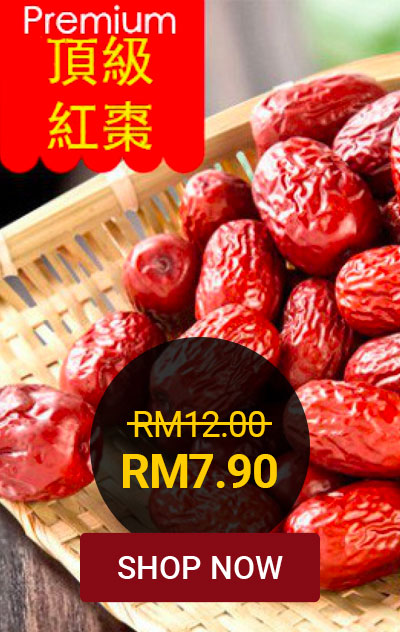
Soy sauce is a traditional liquid condiment of chinese origin made from beans, wheats and brans. It has a unique taste which helps increase one’s appetite. In the olden days of Penang, brewing soy sauce was an art and a secret kept within the family. The knowledge was passed down from generation to generation and rarely taught to outsiders.
Hailing from Taishan of Guangdong, China Yee Saik Choon is the third generation of the Thin Seng Sauce Factory, which was established in 1912. The century-old Thin Seng Sauce Factory is dubbed as the oldest handcrafted soy soyce factory in Penang.
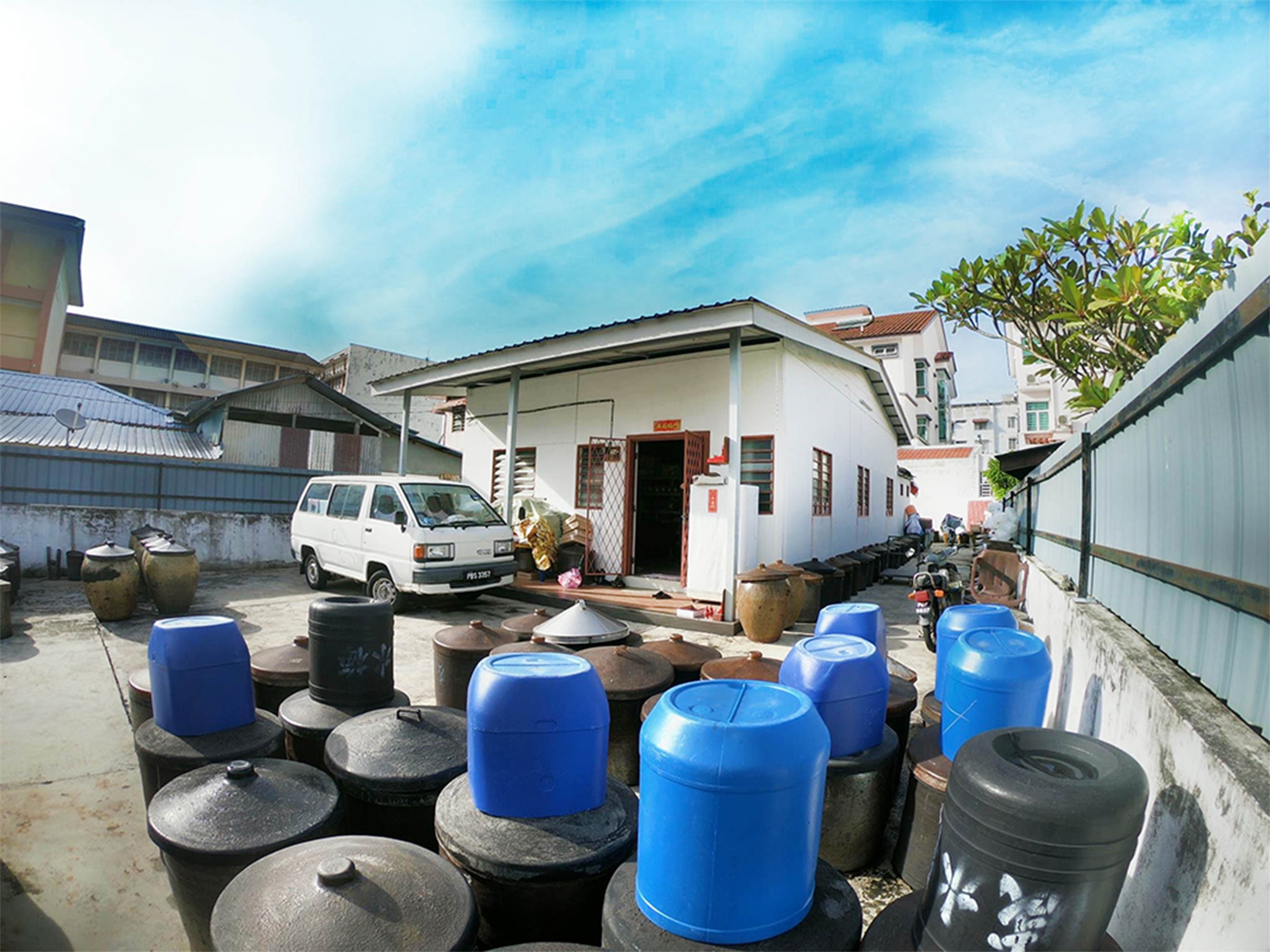
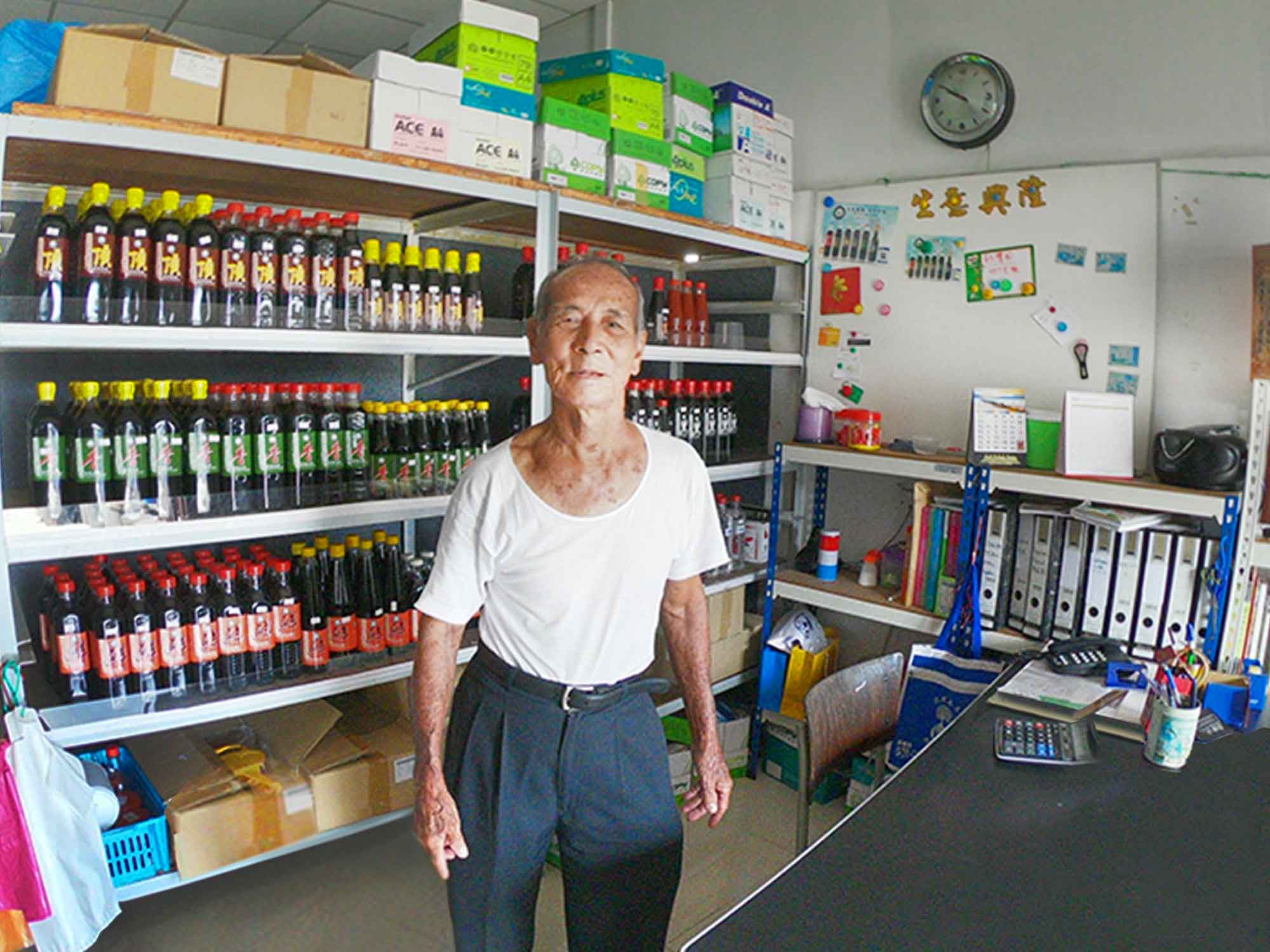
Yee, who was once a gold craftsman, inherited this business from his father-in-law as he was unwilling to see the latter folding up the family business. But it wasn’t as smooth sailing as he had imagined. In 2012, Yee had to relocate the business to Jalan Gemas, where he invested over RM100,000 to keep this century-old business alive.
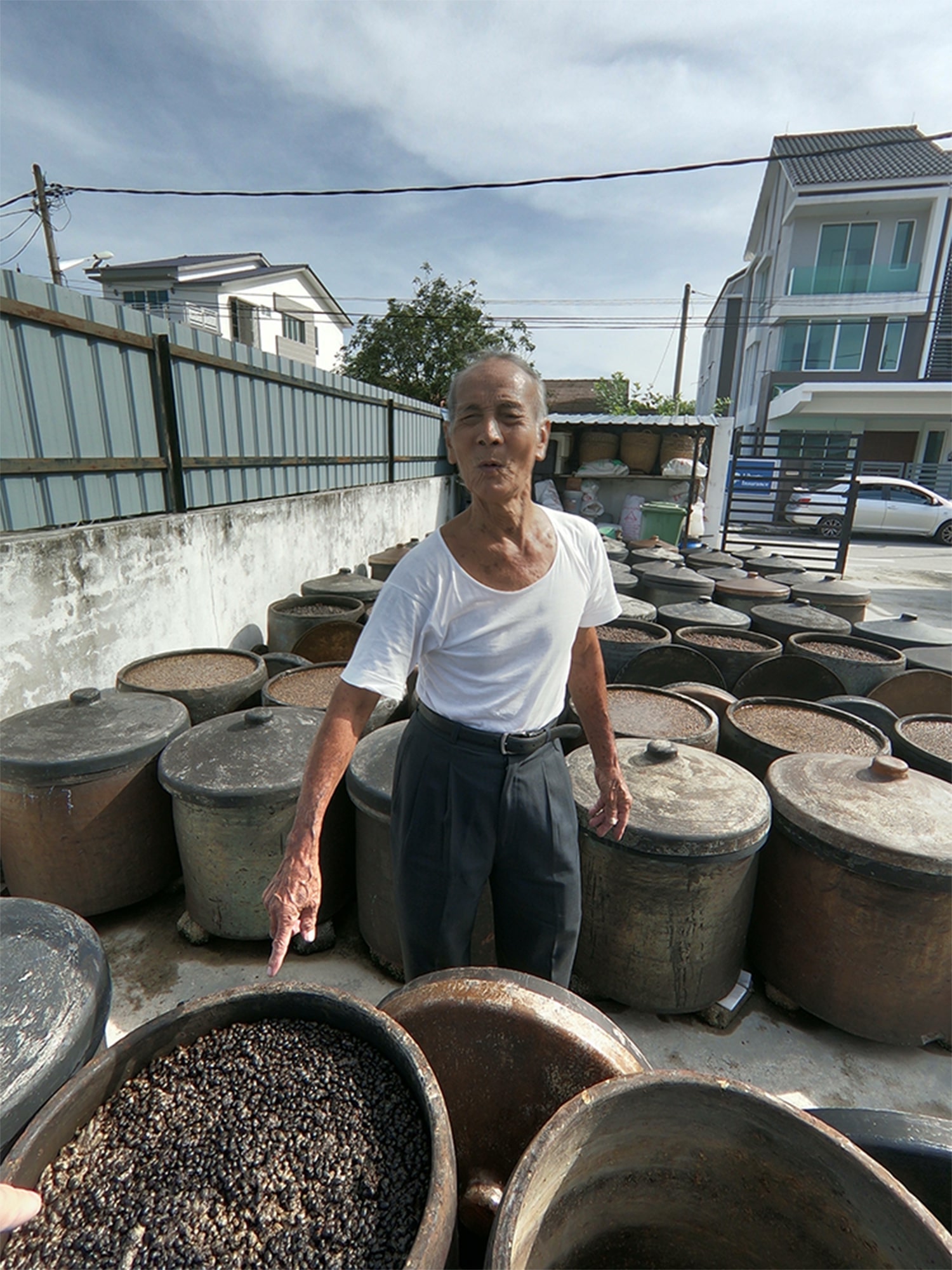
Although the business is still running today, it has lost its lustre compared with its golden era. The soy sauce production has greatly declined. The company now mainly supplies to hawkers and food caterers in the vicinity.
According to Yee, brewing soy sauce using the handcrafted method is an extremely time-consuming and labour-intensive task. It takes five hours to boil every 450 kilogrammes of soy beans. The soybeans are then sifted, drained and set aside for three hours to ensure the cooked soybeans cool off naturally and completely before salt water and flour are added in. The mixture will then be stirred evenly and poured into 20 pottery pots respectively to allow fermentation. The fermentation period also depends on the weather. If the weather is good, the soy sauce can be extracted and bottled for sales within about two months. But in the event of a rainy season or cloudy days, it will need another month before it can be harvested.
The fermented soy sauce in each pot can be extracted up to 7 times. The first extraction gives the best quality soy sauce. Then, it is required to add in salt water before the pots are covered up for a week. Next is the second extraction, and so on.
As for the remaining fermented soy beans, they can be used to make soybean paste or sweet sauce. The crystalised salt formed in the pots not only can be reused for sauce brewing , it also can be used to cook salt-baked chicken, where the unique salty and fresh taste that it has is loved by many.
Yee revealed that every day, his work starts in the morning and he needs to inspect the progress of soy sauce in each pot. He would then return inside the building for bottling work in the afternoon. He noted that this field is not favoured by the younger generation. After all, it is a traditional proffesion in which physical strength and endurance are very much tested. If he encountered someone who shares the same beliefs or ideas, he is willing to pass on the knowledge to him.
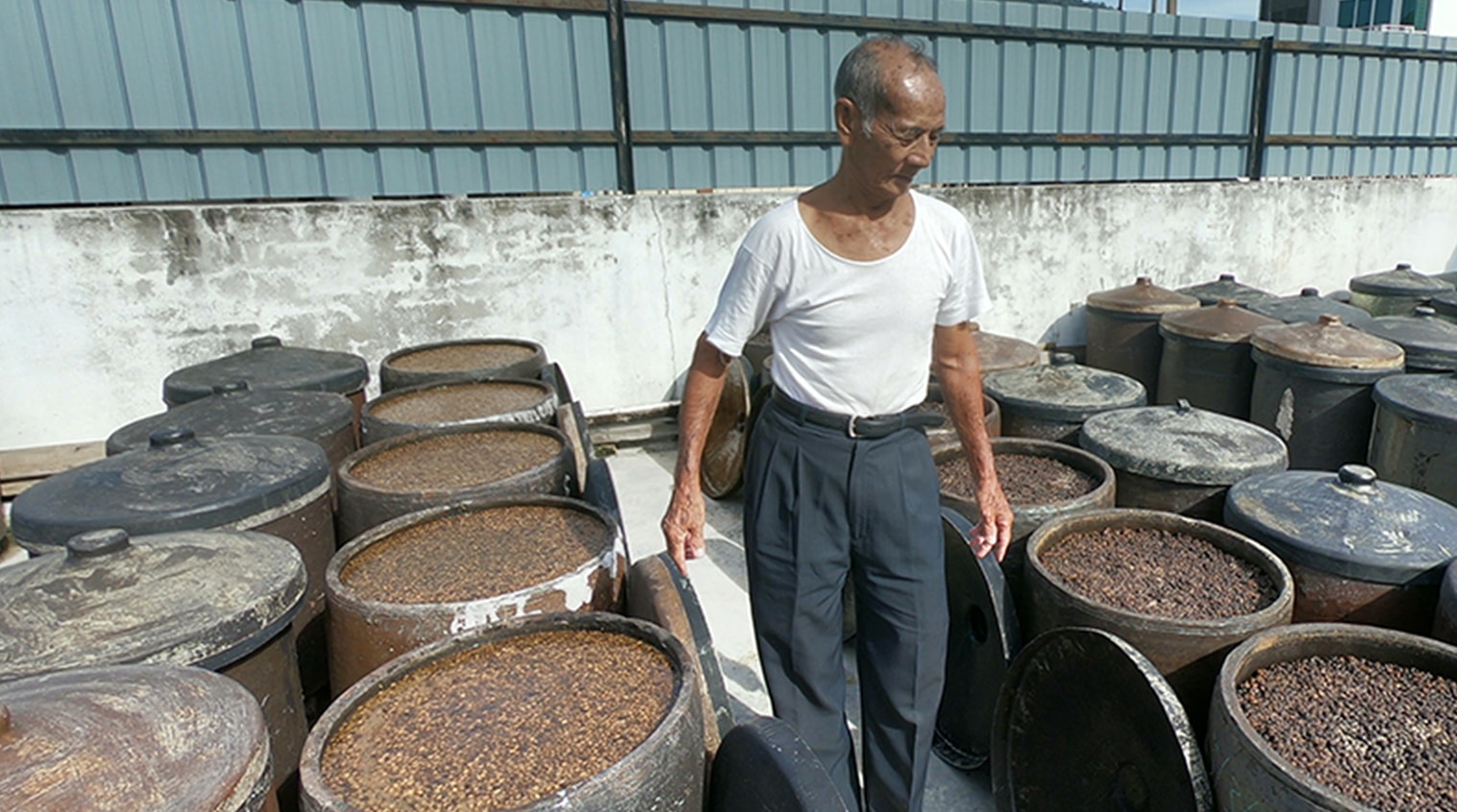
Yee said that Thin Seng Sauce Factory was established in 1912 and he believes that this is the oldest soy sauce factory in Penang. The factory produces various kinds of products, including soy sauce, sweet sauce, soybean paste and chili sauce, among others.
In its heyday, the factory had as many as 20 workers and some 1500 pottery pots were used for soy sauce production. At that time, the products not only were distributed to many states in Malaysia, but they were also exported to Indonesia.
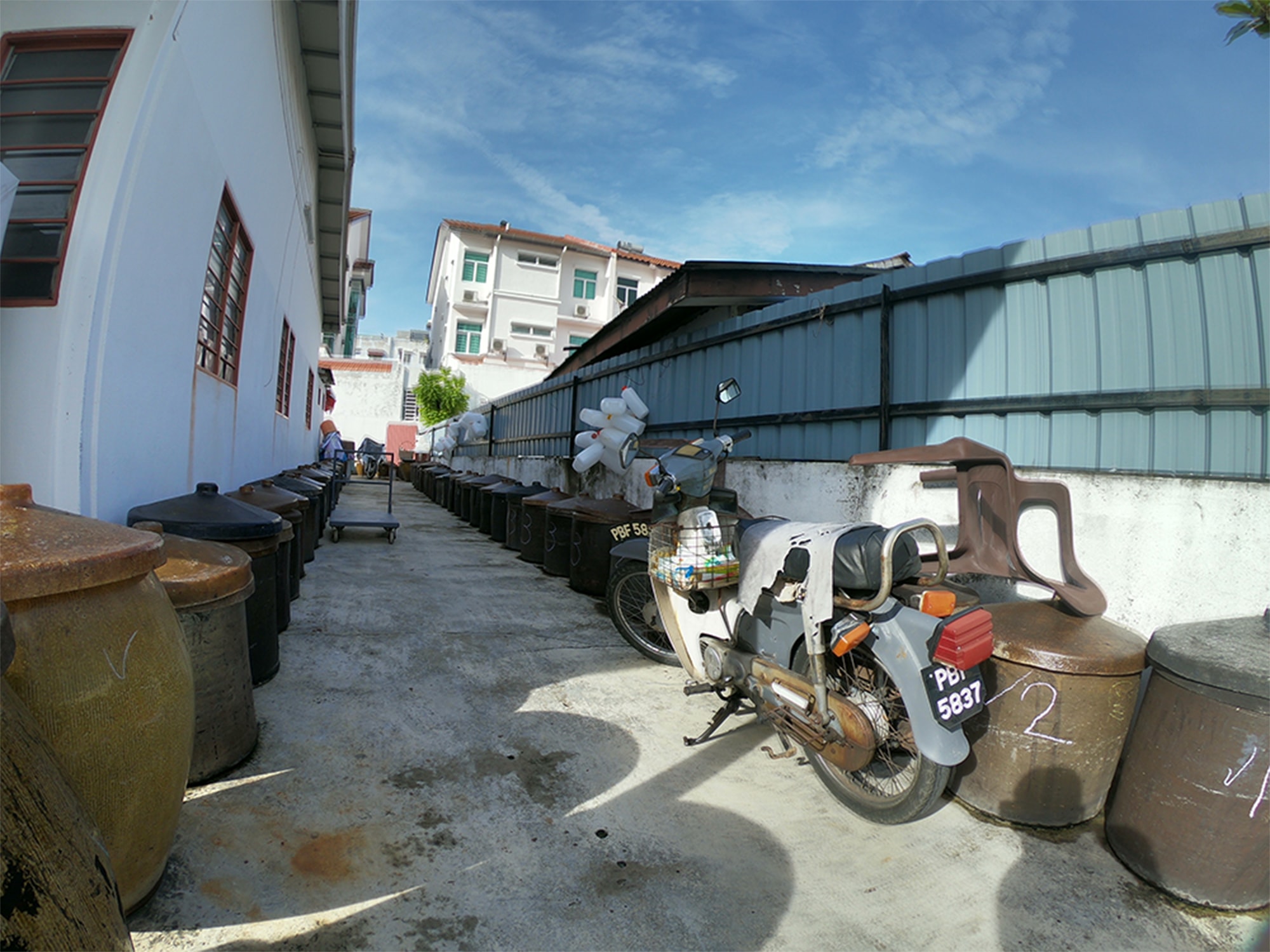
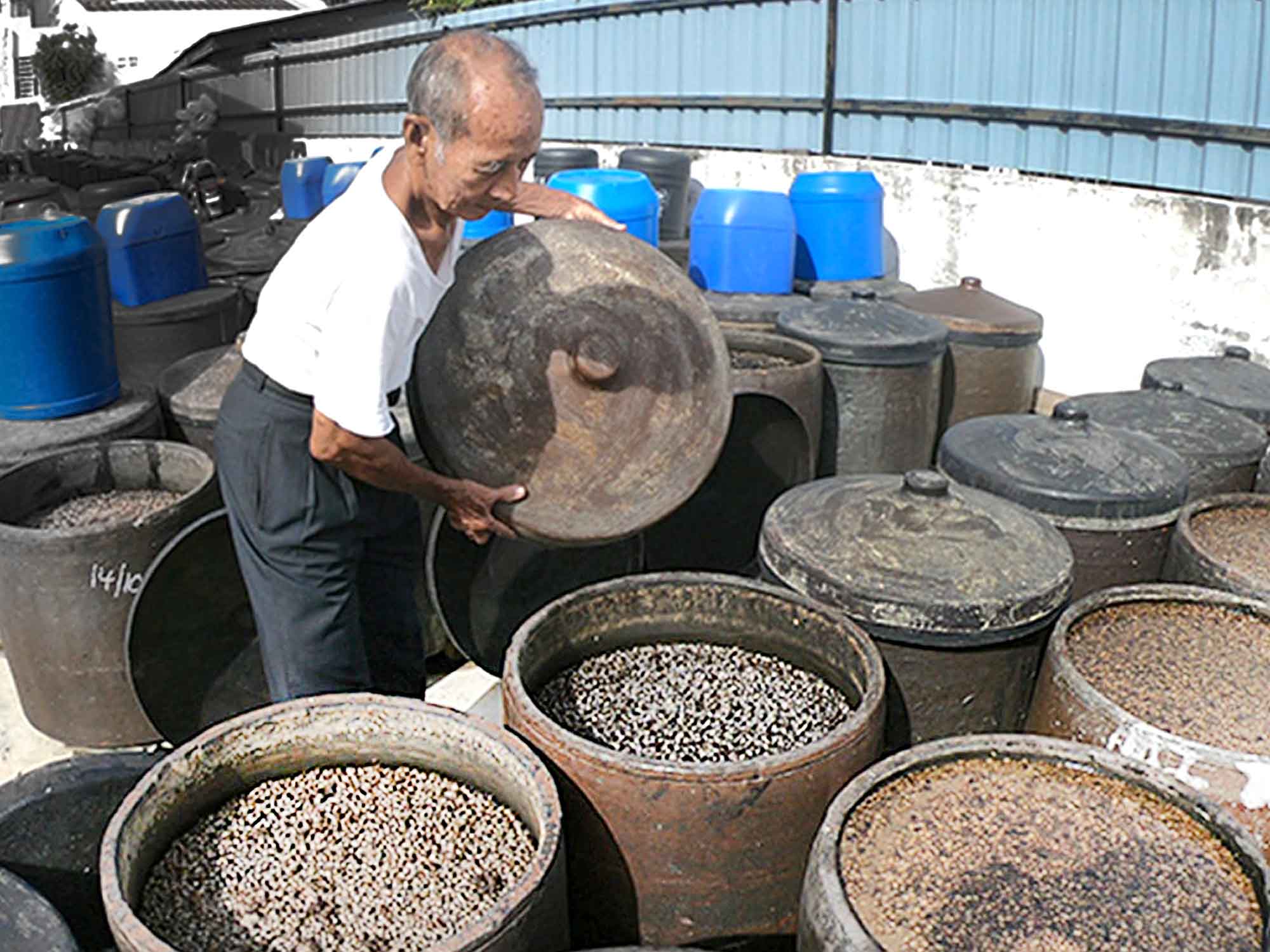
But things are very different now. Today there are only 4 people left, -Yee and his daughter, an old master who’s in service for half a century, and another male senior staff member. The soy sauce factory still contains a lot of traditional tools, especially an old grinder that has been kept for many years, and also some century-old earthenwares.
Occasionally, foreign tourists, including those from Singapore and Australia, visit the factory. Even several local TV stations came to help promote the art of brewing soy sauce. As years went by, Thin Seng Sauce Factory has transformed itself into one of the most precious cultural heritage in Penang.



